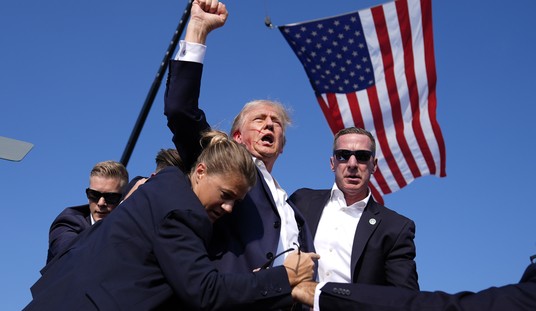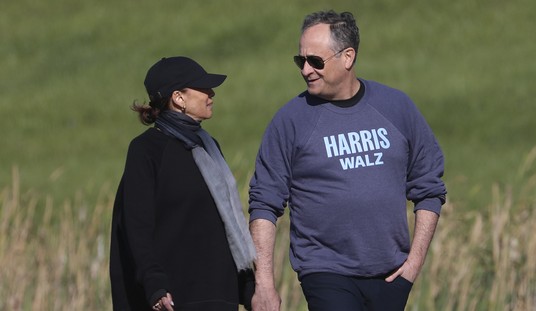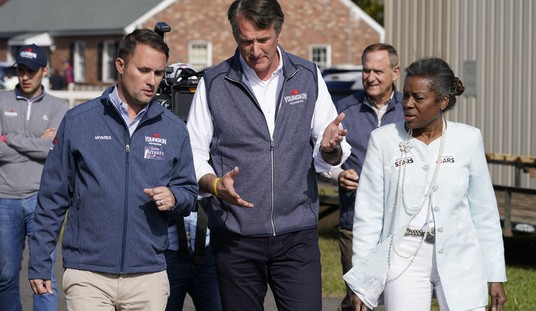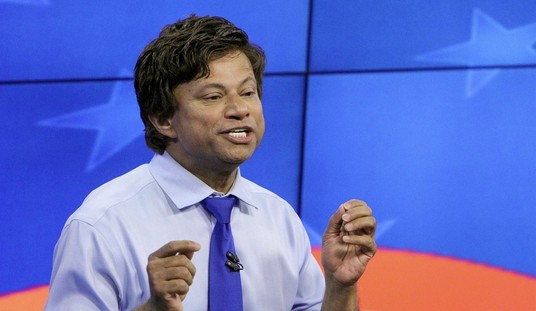Without violence, society falls apart.
Seems an odd thing to say, but it's a brutal truth about reality. Civilization is dependent on violence being a barrier, and if that barrier is lifted even a little, chaos sets in. Violence is the enforcer of order.
Naturally, this gets lost in modern dialogue. Violence isn't okay until it's violence for the right reason. However, the "right reasons" are usually politically charged, and almost always to the left. It's not okay to use violence against a black man pointing a gun at police officers, but it's perfectly fine to use violence against a parent protesting transgender brainwashing in public schools.
It's not okay for a man to defend people on a subway train from a violence repeat criminal, but the cold-blooded murder of a CEO of a company you don't like is worth throwing a parade over.
But this serves to highlight good violence and bad violence. Nefarious violence and virtuous violence.
Nefarious violence would be a Black Lives Matter riot. It's based on mob justice, and mob justice tends not to have any real end-goal because the mob's goals are ever-changing. For instance, the BLM riots featured "justice for (insert name here)" but quickly morphed into violence for violence’s sake and destruction for entertainment or self-enrichment.
But then you have Kyle Rittenhouse, who demonstrated virtuous violence in the midst of a BLM riot. For starters, his goal wasn't violence to begin with. He was there to defend and assist. When he was attacked, he enacted violence. Two people died, and a third was injured, but all three were awful people when you delve into who they were. Rittenhouse's violence was ultimately a net good because the violence he resorted to was necessary, and not based on some misplaced ideological sense of justice. He was being attacked by people who were there to do unnecessary violence.
Rittenhouse was, and should be, celebrated.
Let's look at another example of virtuous violence that brings up another aspect of it that I want to discuss, the enthusiastic use of virtuous violence, which I think is integral to society's safety.
You've likely heard of Sheriff Grady Judd of the Polk County Sheriff's Office in Florida, and a man whom I think exhibits the essence of virtuous violence. For those who haven't heard of him, watch these two videos below where Judd talks about how you're probably going to get shot in Polk County if you try high jacking a car, and discussing how the only reason one assailant who attempted violence against police and citizens was shot 68 times is because the responding officers ran out of bullets.
Media: why did you shoot the guy 68 times?
— The Redheaded libertarian (@TRHLofficial) December 30, 2024
Grady Judd: because we ran out of bullets.pic.twitter.com/1cvfgjk96W
In both situations where Judd was discussing the deaths of the assailants, he was talking to someone who seemed either aghast or at least wanting an answer for what is being labeled as excessive violence. Judd's answers were, in my opinion, brutal but perfect. The theme of both is an unapologetic, uncompromising position that if you attempt violence on someone, you're putting your own life in your hands because in his jurisdiction, violence is encouraged against those who would resort to violence for selfish or evil purposes.
I feel like in today's day and age, some people see any death as excessive, especially against criminals of certain varieties, but the truth is that death is sometimes the solve for an underlying societal issue. It would, of course, be preferable if death wasn't necessary, but there are people who aren't going to stop because they were asked, ordered to, or even imprisoned for. Too many people get out of prison and jump right back into harming others, and a more soft on crime approach is used against these people, the more innocents get hurt.
To be clear, even violence that looks virtuous can be nefarious. Revenge killings are often just a perpetuation of a cycle of violence. Hunting someone down after they've done you some tremendous wrong is great cinema, and even real life situations where father got revenge on people for harming their children is something we celebrate. I'm one of them.
But revenge isn't justice, and it oftentimes results in more harm than good. Multiple cultures understood that, whether it be Chinese philosophy or even Biblical philosophy, and modern psychology agrees with both. In the short term, revenge feels good. Planning it, and the anticipation of it, are almost addictive. It actually activates the reward centers of the brain. However, once completed, the act feels more hollow than you'd expect. Over time, your brain tends to deepen the resentment you feel against those you got revenge against. The act actually prolongs the effects of the original injustice, making it harder to get over.
This is why revenge isn't a virtue. It's fun to talk about and wish for, but it's not fulfilling and it's ultimately damaging.
Violence is necessary to keep us afloat, but rules do apply for it to be virtuous. When those rules are met, there should be no shame or regret for utilizing it despite the mob's protests. However, we do need to be careful to stay in those lines.
But that said, I do feel that while it's regretful that we live in a fallen world where violence is sometimes necessary, the use of it, in the right context, is one of the greatest tools we have to keep society from falling apart.















